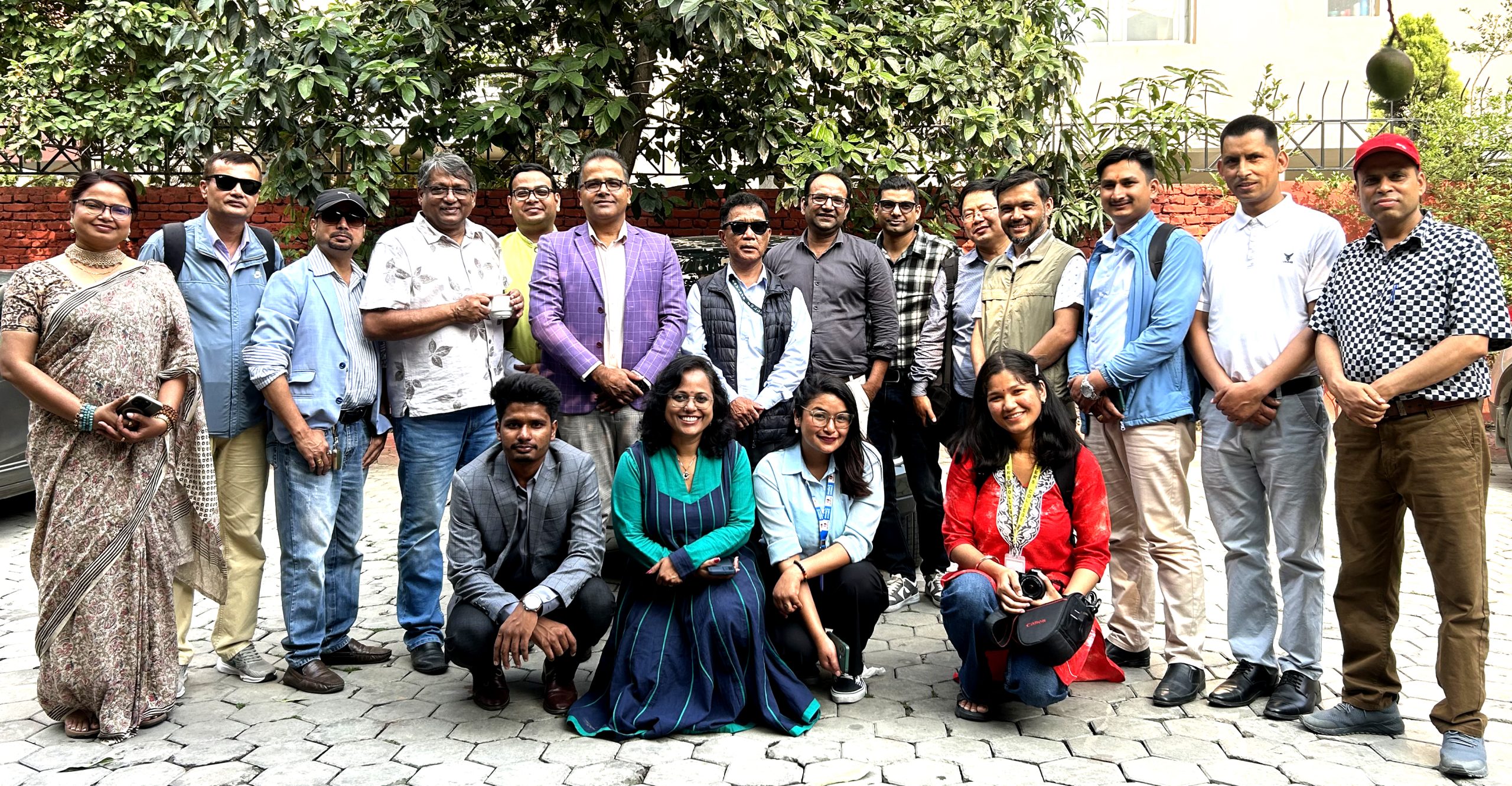AMIC Sparks Dialogue on 'Asia as a Knowledge Sharing Society' in Kathmandu

KATHMANDU/May 29: Asian Media Information and Communication Centre (AMIC) representatives from Nepal and India held a semi-formal discussion on Asia as a Knowledge Sharing Society in Kathmandu on 28th May 2024, aligning with AMIC’s 30th Annual Conference theme taking place in September 2024.
The discussion was witnessed by 29 participants from various institutions, including colleges, media houses, researchers, scholars, and academicians.
Laxman Datt Pant, AMIC’s representative in Nepal, presented an overview of AMIC and opportunities for research in communications and media. Pant stated that AMIC is an excellent platform for showcasing knowledge in various fields of media and research. “With proper use of AMIC, media researchers can contribute to and benefit the research field with a far-reaching impact.”
Similarly, Dr. Chandrabhanu Pattanayak, an AMIC representative in India and a well-known media academician, researcher, and journal editor, discussed Asia’s role in global knowledge and information exchange. According to Pattanayak, there is a reverse paradigm in Asia versus the West. “The West, on the one hand, emphasizes lingua franca, whereas the East or Asia emphasizes multilingualism, and, surprisingly, there have been no communication breaks or gaps between the countries,” he stated.
Dr. Aditya Shukla, an Indian academic, expressed his great pleasure at the opportunity to discuss such important issues. He said, “AMIC is doing tremendous work in the knowledge sharing field and establishing Asia as a knowledge hub. Particularly, the programme on Asia as a knowledge sharing society was well organised and programmes like such can explore the potential of Asia as a knowledge hub.”
He also stated, “If Asian countries come together and emphasize and share Asian knowledge on a high level. We can position our region as a knowledge hub. Because we are completely different from the West, and we have histories with various philosophies that have yet to be fully explored.”
Shreeman Sharma, Research Uptake Manager at HERD International suggested that AMIC should help in enhancing the capacity of researchers and institutions in Nepal. This is an appropriate time to prioritize Nepal’s media and communication research needs, he added.
Participants inquired about and expressed interest in AMIC’s work, as well as suggestions for how it can broaden its scope to help elevate the Asian perspective in Nepal through its rigorous work. They also discussed how Nepalese scholars can join the AMIC to contribute to and disseminate Asian knowledge throughout the world. The discussion was moderated by Bal Krisha Sah, a correspondent at the Himalayan Times English daily. (END)
